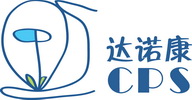Name: Piter Liu
Tel: +86-10-52967155
Fax: +86-10-52967155
Mobile: +86-13811891698
E-mail: info@chempharmsou.com
Add: No132, Shahe Industrial City, No 99 of Changping Road, Changping District, Beijing, 102206
QQ:
749869107


March 29, 2013 -- The U.S. Food and Drug Administration today approved Invokana '(canagliflozin) tablets, used with diet and exercise, to improve glycemic control in adul♠ts with type 2 diabetes.
Type 2 diabetes is the most common form of the disease, affecting about 24 million ±people and accounting for more than 90 percent of diabete>s cases diagnosed in the United States. Over time, high blood § sugar levels can increase the risk for serious complications, including heart disease☆, blindness, and nerve and kidney damage.
“Invokana is the first diabetes treatment approved in a new class of drugs δknown as sodium-glucose co-transporter 2 (SGLT2) inhibitors,” said Ma★ry Parks, M.D., director of the Division of Metabolism and Endocrinol≥ogy Products in the FDA’s Center for Drug Eva¶luation and Research. “We continue to advance innova÷tion with the approval of new drug classes that provi<de additional treatment options for chronic conditions tha™t impact public health.”
Invokana works by blocking the reabsorption of glucose by the kidne↓y, increasing glucose excretion, and lowering blood glucose levels in diabetics who have elevated" blood glucose levels. Its safety and effectiveness were evaluated in ↓nine clinical trials involving over 10,285 patients w÷ith type 2 diabetes. The trials showed improvement in hemoglobin A1c levels (a∞ measure of blood sugar control) and fasting plasma glucose (blood sugar) leve ls.
Invokana has been studied as a stand-alone therapy and in combinatio€n with other type 2 diabetes therapies including metformin, sulfonylπurea, pioglitazone, and insulin. Invokana should not be used© to treat people with type 1 diabetes; in those who h©ave increased ketones in their blood or urine (diabetic ketoac®idosis); or in those with severe renal impairment, ↓end stage renal disease, or in patients on dialysis.
The FDA is requiring five postmarketing studies for Invokana: a cardiovascular outc↔omes trial; an enhanced pharmacovigilance program to monitor >for malignancies, serious cases of pancreatitis, sev&ere hypersensitivity reactions, photosensitivity reactions, liver abnormalities, and ad©verse pregnancy outcomes; a bone safety study; and two pediatric studies under the Pediatric Resεearch Equity Act (PREA), including a pharmacokinetic and p&harmacodynamic study and a safety and efficacy study.
The most common side effects of Invokana are vaginal yeast infecΩtion (vulvovaginal candidiasis) and urinary tract infection. Because Invokana is associated withλ a diuretic effect, it can cause a reduction in intravascular volume leading to orthostatic ±or postural hypotension (a sudden fall in blood pressδure when standing up). This may result in symptoms such as dizziness or fainting£, and is most common in the first three months of therapy.
Invokana is manufactured for Janssen Pharmaceuticals, Inc., Titusville, N.J.
Source: FDA
Posted: March 2013





 drug discovery
drug discovery